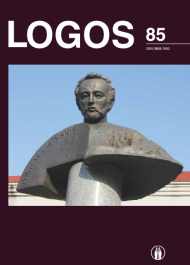Blogio Samprata Sri Aurobindo Dieviškajame Gyvenime
The Concept of Evil in Sri Aurobindo’s „Life Divine“
Author(s): Daiva TamošaitytėSubject(s): Metaphysics, Existentialism, Philosophy of Religion
Published by: Visuomeninė organizacija »LOGOS«
Keywords: evil; good; relativity; divinity; oneness; transformation;
Summary/Abstract: Sri Aurobindo discusses evil in the context of his original metaphysical theory according to which the problem is a temporary phenomenon indispensable during the evolutionary process. He proposes to see the problem as a relative duality of Divine and Undivine, which is below the eternal Divine perfection and absolute good. Understanding the consequences of nescience and imperfection – relative good, error, falsehood and evil, one cannot avoid falling into human weaknesses and ignorance as well as under the influence of the vital supraphysical sphere. In a terrestrial life and if there is mutual oneness with the Divine Being, one can keep a partial perfection and divinity. The fundamental nature of this Divine Being is absolute True-Consciousness, and its intermediary is our soul. The solving of the problem lies in a spiritual life, when psychic being and man moves towards ever greater perfection and good, and so evil cannot enter. The aim of the True-Consciousness is a dynamic evolutionary transformation of the present laws of being into the Divine on altogether new conditions. Only then can the problem of evil be solved. The concept of Sri Aurobindo is akin to the Christian mystical theory of Saint John of the Cross, which also foresees the transformation of human nature on the basis of perfection and oneness with the Divine.
Journal: LOGOS - A Journal of Religion, Philosophy, Comparative Cultural Studies and Art
- Issue Year: 2015
- Issue No: 85
- Page Range: 37-45
- Page Count: 9
- Language: Lithuanian

